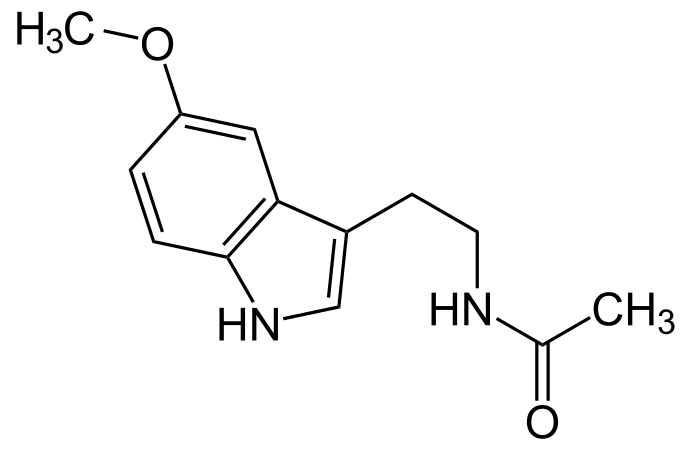Author: Kimberly Johnston ’26
Endometriosis is defined by the growth of endometrial tissue outside the uterus where it does not belong. It occurs in about 10% of women of reproductive age and leads to chronic pelvic pain and infertility. Despite the prevalence of this disease, its cause remains unknown. While there is no known cure to endometriosis, there are methods of symptom management, including hormone therapy. Dienogest, a synthetic form of progesterone, is currently used to reduce pelvic pain in endometriosis patients. However, this type of treatment has side effects, including long-term levels of estrogen deficiency. A study published by S. Park et al. suggests that an additional agent used in combination with hormone therapy is needed to counter the hormonal imbalance caused by endometriosis.
In this study, researchers sought to evaluate the role of the hormone melatonin in inhibiting endometriosis development. Melatonin is typically associated with the regulation of the sleep-wake cycle, though it also functions as a regulator of MMPs – enzymes involved in the remodeling of endometrial tissue. To perform this study, a surgery-induced endometriosis model was created. The researchers implanted mouse uterine epithelial tissues in the peritoneum – the lining of the abdominal organs. After the presence of endometriotic lesions was confirmed, melatonin was orally administered with or without dienogest for two weeks. Although the combination of melatonin and dienogest had no statistically significant effects, melatonin alone affected the cell cycle in several ways, namely suppression of proliferation and induction of apoptosis in endometriotic cells, and also decreased endometriotic lesions.
Advancing scientific research regarding women’s reproductive health is necessary in order to improve the overall health and quality of life of women affected by conditions such as endometriosis. As demonstrated by this study, melatonin has the potential to be a therapeutic agent in managing the development of endometriosis. Further research into the mechanisms of this process must be conducted so that a safe and effective treatment can be implemented in clinical practice.
Figure 1: Melatonin is secreted by the pineal gland, a part of the endocrine system. It plays an important role in regulating reproductive hormones.
[1] Park S, Ham J, Yang C, et al. “Melatonin inhibits endometriosis development by disrupting mitochondrial function and regulating tiRNAs.” J Pineal Res. (2023). doi:10.1111/jpi.12842
[2] Image retrieved from: https://commons.wikimedia.org/wiki/File:Melatonin2.s

